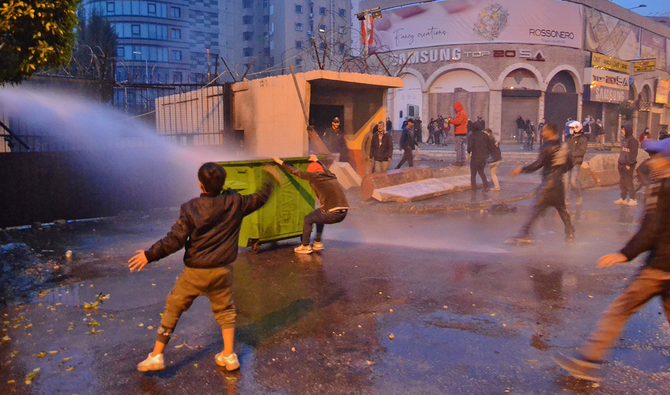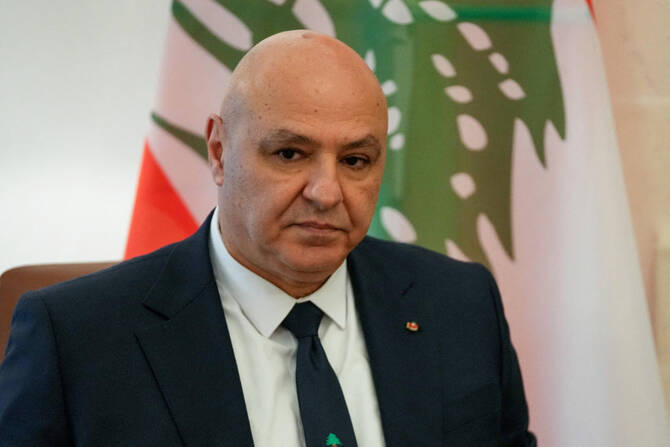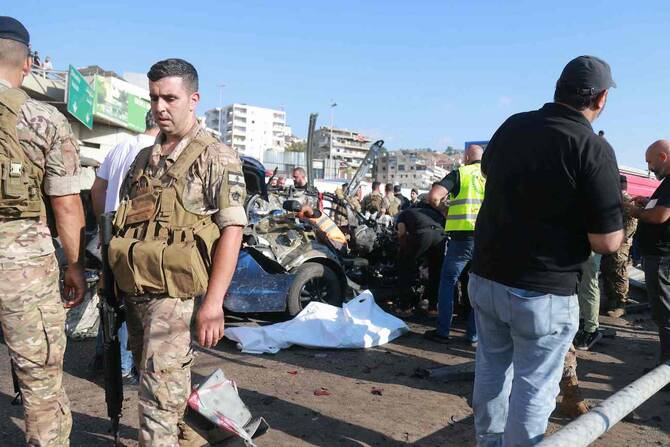Najia Houssari
BEIRUT: The Lebanese Army Command has announced that 31 soldiers were wounded during clashes between protesters and security forces in the northern city of Tripoli, after protests turned violent.
People took to the streets in Tripoli, the south Beirut Dahye suburbs and in the Bekaa to protest their living conditions after a lockdown to stop the spread of the coronavirus disease (COVID-19) in Lebanon has been extended until Feb. 8.
The command said: “Soldiers were wounded after being attacked by protesters with stones, Molotov cocktails and firecrackers. Military vehicles and gear have also been damaged. Five people have been arrested for causing damage to public and private properties, as well as inciting riots and assault on security forces.”
On Wednesday morning, van drivers who were banned from working due to the current lockdown closed the strategic main road of Dahr Al-Baydar linking Beirut and Bekaa.
Protests continued in Tripoli with the participation of activists in Akkar in the far north.
These protests were explained by the Lebanese media as “politically motivated movements.”
Protests have also coincided with a campaign on social media against the Lebanese President Michel Aoun, launched mostly by supporters of Parliament Speaker Nabih Berri.
The campaign came in response to Free Patriotic Movement official and former minister Mario Aoun’s tweet: “No one can eliminate the phenomenon of Michel Aoun and we will extend his presidential term.”
His tweet was a response to a call for early parliamentary elections from various political parties, notably the Lebanese Forces and Kataeb.
The government formation matter has turned into a political dilemma as confidence has been lost among political leaders who stand accused of putting personal gain over public interest.
Prime Minister-designate Saad Hariri was instructed to form a new government on Oct. 22, but no progress has been made, with Aoun opposed to Hariri’s proposed cabinet of 18 ministers.
Aoun had earlier said in a statement that “naming, nominating and distributing the ministers to ministerial portfolios is not an exclusive right for the prime minister-designate, based on two articles in the constitution,” adding that the president “has a constitutional right to approve the entire government before signing.”
In a tweet on Wednesday, Hariri expressed concern “that some might be using the Lebanese people’s suffering and hard living conditions to deliver political messages through the protests.”
MP Anwar Al-Khalil addressed Aoun directly in a tweet, holding him “responsible for getting 60 percent of the Lebanese people below the poverty line while the only thing you care about is to preserve the seat of presidency to pass it on to your son-in-law.”
He also accused the president of “pushing the PM-designate toward resigning over failing to fulfill this task.”
The Beirut-based Arabic Al-Mayadeen TV channel quoted sources close to the presidency affirming that “the ‘I-am-the-strongest’ policy will not work and using people’s instincts in a constitutional matter will not work either. What will actually help Lebanon is for Hariri to go back to the constitution and form a salvation government in cooperation with the president.”
With growing political rifts and stubbornness, religious leaders in Lebanon warned of “quickening collapse amid the continuing rifts among decision makers and the obstruction of national and foreign attempts to bring the two sides together to save the country from the disaster that would be the result of miscalculations and personal differences leading Lebanon to an impasse.”
Religious leaders called for “immediate action to form a government above all personal and factional interests.”
They delivered a clear message to stop messing with the country’s fate. “The people will not forgive and history will not forget,” they said.






















